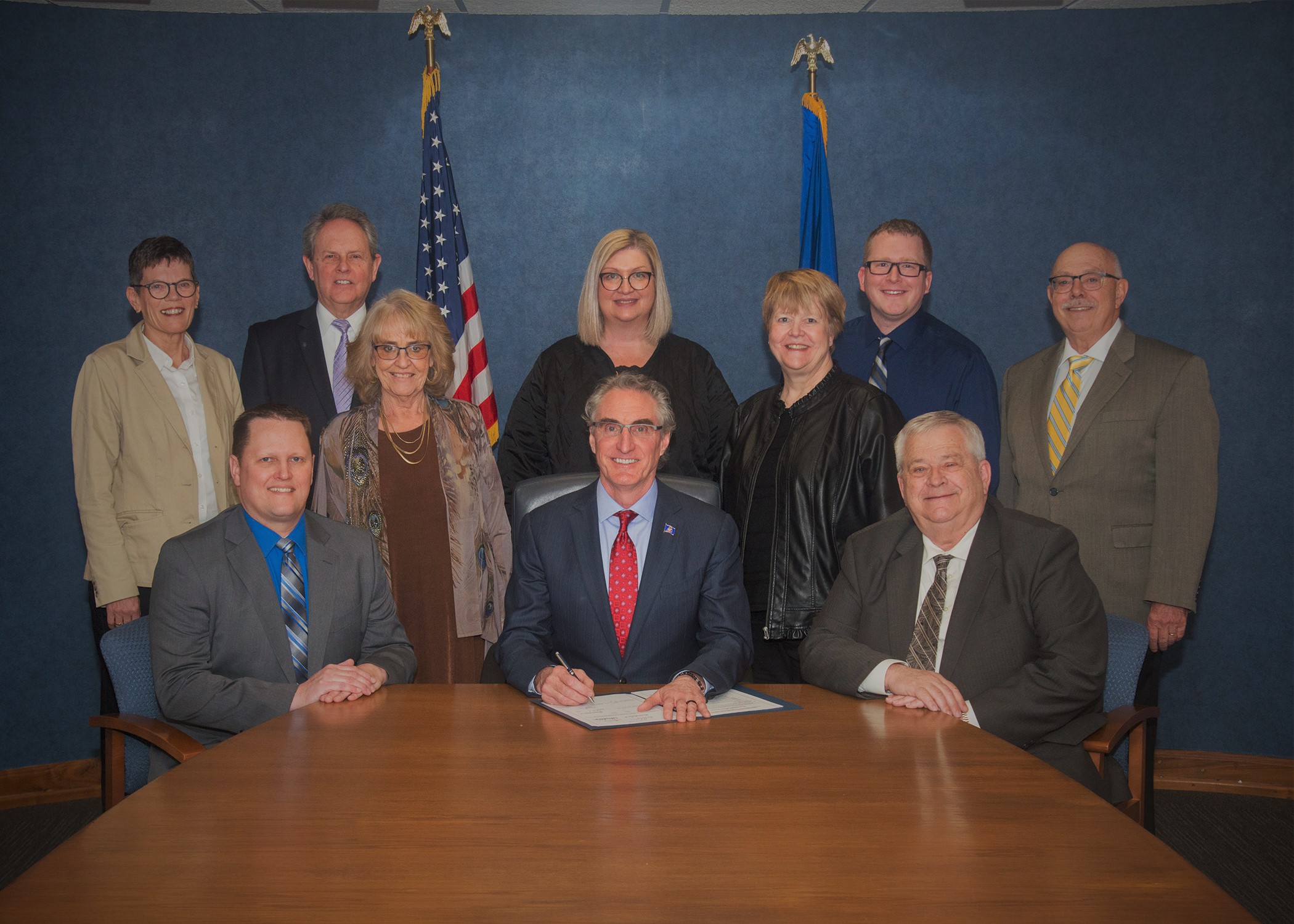PAs Across America Celebrate First State With Key Components of Optimal Team Practice Following the Legislative Victory in North Dakota
Legislation Signed into Law
April 9, 2019

PAs in North Dakota are celebrating the enactment of H.B. 1175, which was signed into law on April 5. Among other significant changes to PA practice in the state, the legislation eliminates the requirement that a PA have an agreement with a specific physician in most settings for nearly all PAs in North Dakota.
[West Virginia PAs Achieve Significant Progress Toward OTP.]
“This legislation will go a long way in expanding access to high-quality care for the people of North Dakota, enabling PAs to practice without unnecessary administrative burdens,” said Jonathan E. Sobel, DMSc, MBA, PA-C, DFAAPA, FAPACVS, president and chair of the board of AAPA. “This landmark move to Optimal Team Practice demonstrates that legislators recognize the PA profession as a solution to some of their toughest healthcare challenges.”
H.B. 1175 makes the following changes:
- Removes the requirement that PAs have a written agreement with a physician if they practice at licensed facilities (e.g., hospitals and nursing homes), facilities or clinics with a credentialing and privileging process, or physician-owned facilities or practices;
- Removes references to “supervision” and allows PAs to collaborate with members of the healthcare team as determined at the practice level;
- Allows PAs to own their own practice with approval of the North Dakota Board of Medicine (PA practice owners with less than 4,000 hours of experience must have a collaborating physician);
- Removes references to physician responsibility for care provided by PAs;
- Makes PAs responsible for the care they provide to patients; and
- Defines PA scope of practice to align with AAPA’s Model State Legislation for PAs.
“These changes are needed for our profession and for our patients. This bill will allow PAs to practice where they are needed most and take the administrative burden off of our physician colleagues. The North Dakota Academy of PAs (NDAPA), along with our bill sponsors, all contributed to the success of this legislation. The legislature unanimously agreed this model makes sense,” said Jay Metzger, PA-C, president of NDAPA.
Optimal Team Practice occurs when PAs, physicians, and other medical professionals work together to provide quality care without burdensome administrative constraints. To support Optimal Team Practice, states should eliminate the requirement that each PA have an agreement with a specific physician and end the disparities between PAs and other medical providers in professional regulation and payment arrangements.
H.B. 1175 was the product of collaboration between NDAPA, legislators, and other health and medical groups. Ongoing discussions with the North Dakota Board of Medicine resulted in the Board contributing to the drafting process and ultimately, supporting the final bill. NDAPA was also able to garner support from numerous physicians, clinics, healthcare organizations, and other state and regional associations. AAPA supported NDAPA by presenting before the Board of Medicine and assisting in legislative drafting. AAPA also sent letters of support during committee consideration of the bill.
North Dakota law has incorporated all six of AAPA’s Six Key Elements of a Modern PA Practice Act since 2010, and there is currently one PA seat on the Board of Medicine. H.B. 1175 is another leap forward in improving patient access in a changing healthcare landscape by removing onerous restrictions on PA practice. The bill received unanimous approval in both the House and Senate, and the new law becomes effective on Aug. 1, 2019.
For more information on the new law or PA practice in North Dakota, please contact Erika Miller, director of state advocacy and outreach.
Additional Resources
West Virginia PAs Achieve Significant Progress Toward OTP
Thank you for reading AAPA’s News Central
You have 2 articles left this month. Create a free account to read more stories, or become a member for more access to exclusive benefits! Already have an account? Log in.



